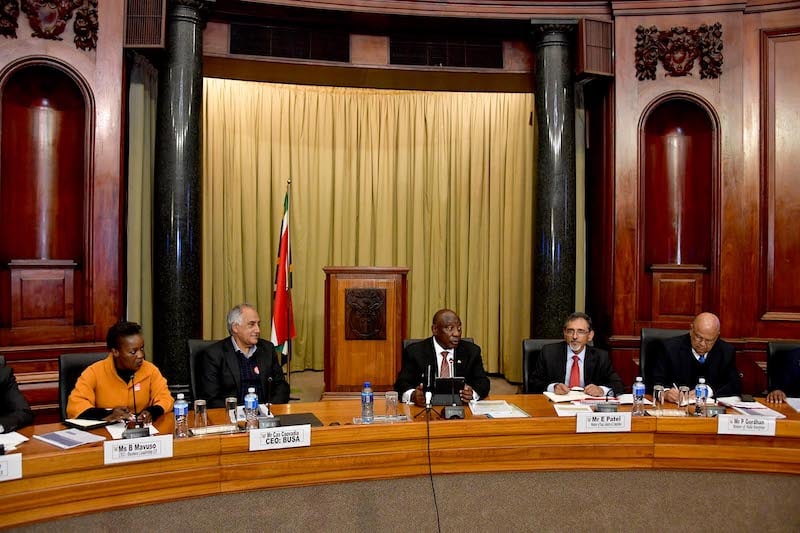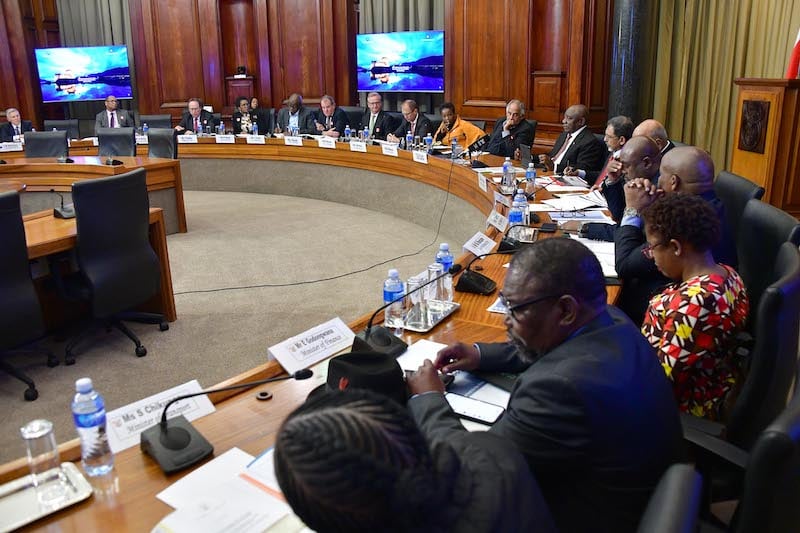B4SA has made significant progress in establishing the three priority workstreams to work closely with government in implementing the urgent necessary actions, said Martin Kingston, chair of the B4SA steering committee.
Mr Kingston said: “B4SA’s three priority workstreams are fully mobilised and, through joint collaboration and strategic partnerships with government, are focused on articulating and delivering a critical path to recovery, building societal and business confidence, as well as supporting the government to deliver on these interventions. We are expecting to make considerable progress in the short term to realise collective benefits and set us on a sustainable path which capitalises on the country’s significant potential.”
The following progress has been made on the three work streams:
- Energy: Collaboration, through NECOM, is underway to end load shedding and achieve energy security. Businesses will support a drive to close the current energy capacity gap and build confidence in restoring energy security. The business sector has also agreed to further capacitate NECOM to develop a confidence-building national communication plan that is credible and transparent with visible and demonstrable actions.
- Transport and Logistics: Efforts are underway to stabilise and improve operational performance on key trade corridors by mobilising private sector resources and accelerating the implementation of the National Rail Policy to close the capacity gap. Work is also being done to integrate the business sector’s efforts into government’s Freight Logistics Roadmap and enable the development of work plans, deliverables and timelines. The private sector will also be integrated into the recently formed NLCC.
- Crime and Corruption: As fighting crime and corruption remain a government function, the government is leading this area by strengthening law enforcement agencies, such as the Investigating Directorate (ID) in the National Prosecuting Authority (NPA). The government is also implementing intelligence, policing and other reforms. The business sector will provide support to these efforts by assisting with expert resources and the establishment of the JICC.
The workstream priorities will be continuously reassessed and reprioritised and, in the future, additional focus areas, such as water and infrastructure, may be brought into scope, explained Mr Kingston.
Mr Kingston said: “Government and businesses have successfully demonstrated the benefits of partnership for the common good of South Africans through the Covid-19 pandemic, the vaccination programme, the recent formation of the Resource Mobilisation Fund, and many other examples. We have again agreed to work collaboratively, in this case with joint, fit-for-purpose teams through NECOM, NLCC, and JICC, to help drive the urgently needed economic recovery work programme. This will result in workable solutions, and we will communicate publicly on a regular basis as to the objectives and timelines to achieve meaningful progress”.
Read about some of the successful private-public partnerships:



.svg)












